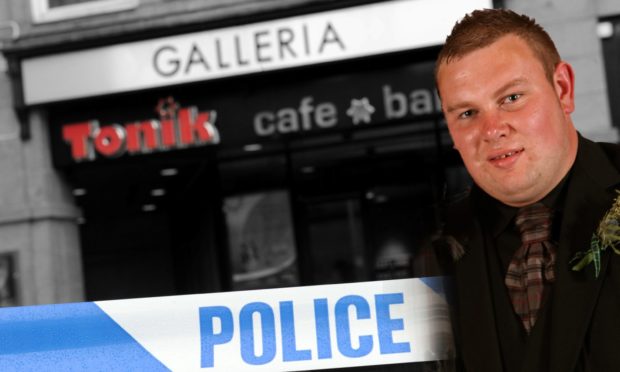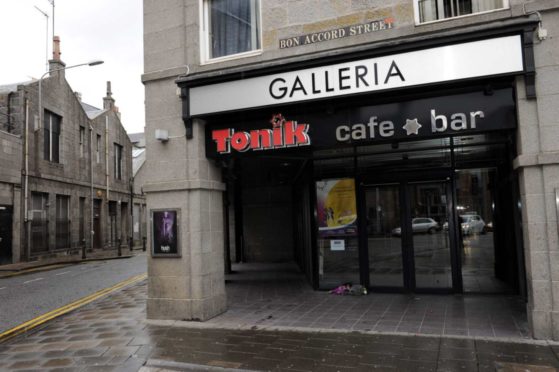The widow of Craig Grant, who died after being put in a chokehold by a bouncer outside an Aberdeen bar, has won a legal battle for compensation at the UK’s highest court.
Fiona Grant’s late husband died after he was escorted from the Tonik Bar in Aberdeen in August 2013 after falling asleep at a table inside.
Door steward Jonas Marcius went on trial for murder but was convicted of assaulting him by grabbing him by the neck, forcing him to the ground, and placing him in a chokehold.
Mrs Grant, 34, raised a civil compensation claim against Marcius’ former employers Prospect Security Ltd, which is now in liquidation, and the International Insurance Company of Hanover, which provided public liability insurance to the security firm.
In the action, she claimed the death of dad-of-one Mr Grant, of Monymusk and the resultant loss and damage she suffered, were caused by the fault and negligence of Marcius.
The insurance firm refused to make a payout because they claimed an exclusion clause in their contract with the security company meant they would not be liable for “deliberate acts”.
Lawyers for the firm argued that Marcius had committed a “reckless” act which was excluded under the terms of the policy.
Mrs Grant’s win
Mrs Grant won a ruling at the Court of Session in Edinburgh which declared the insurer was obliged to compensate the liquidated security firm and that its right to compensation should be transferred to her.
However, the International Insurance Company of Hanover appealed to the Supreme Court in London seeking to have the decision overturned.
Five Supreme Court judges have now found in Mrs Grant’s favour following the hearing in February.
They said the insurer was obliged to make a payout because there was no evidence that Marcius had acted “recklessly” or had deliberately set out to cause serious injury to Mr Grant.
The ruling
In a ruling issued on Friday, Lord Hamblen said: “There is a clear risk that door stewards will use a degree of force in carrying out their duties.
“As the Court of Session recognised, the required cover for public liability was that which would deal with such incidents at the door of bars. Otherwise, the policy would be stripped of much of its content.
“Against that background, the critical issue dividing the parties is what is meant by ‘deliberate acts’.
“The Insurer’s case is that it means acts which are intended to cause injury, or acts which are carried out recklessly as to whether they will cause injury. Mrs Grant’s case is that it means acts which are intended to cause the specific injury which results, in this case death or at least serious injury, but that on any view it does not include reckless acts.
“The Insurer is unable to establish that the exclusion applies on the facts as found. There was no finding of intention to injure, or even recklessness.
“The conviction for assault does not establish any intention beyond an intention to perform the act of assault, namely the neck hold.
“The sentencing judge concluded that what was done was ‘badly executed, not badly motivated,’ which is inconsistent with such an intention.
“Even if ‘deliberate acts’ included recklessness, the same conclusion would follow due to the sentencing judge’s conclusion.”
Mr Grant’s death
When the 26-year-old fell asleep, Marcius escorted him from the table to the entrance. CCTV footage captured the moment he was assaulted and held on the ground until police arrived.
At the High Court in Edinburgh in January 2015, Marcius, originally from Lithuania, was sentenced to 250 hours of unpaid work.
Judge Lady Wolffe told Marcius he should never have used the “dangerous” chokehold but accepted his actions were “badly executed, not badly motivated”.




